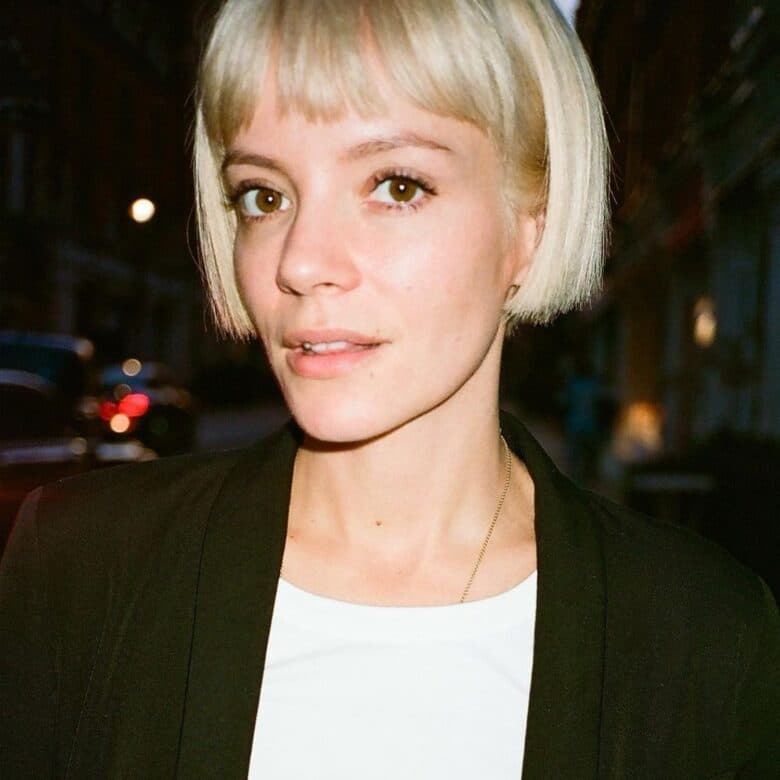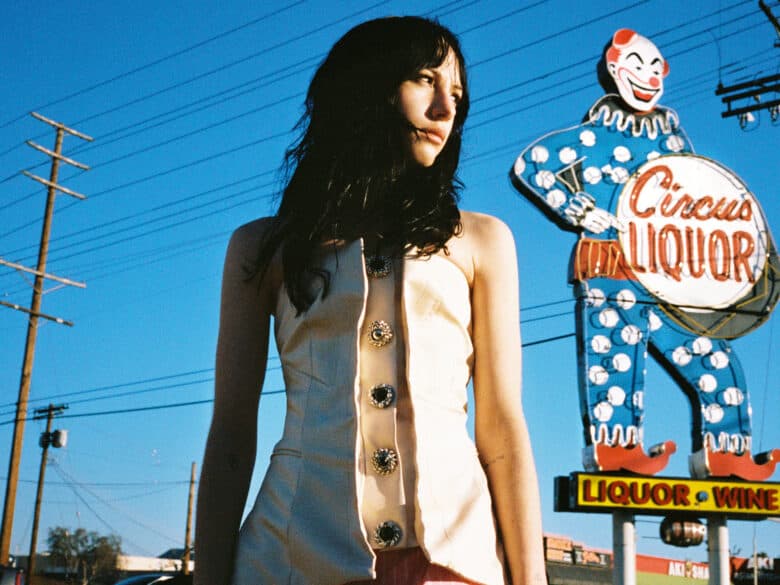Activism At Home: Ryan Lanji
A fashion and art cultural producer, Ryan Lanji is a quintessential multi-hyphenate. The man behind East London’s queer Bollywood hip-hop night Hungama and NDY, a resource providing fitness and wellness to the queer community, his work is fuelled by a conviction that culture can make the world a better place. A self-professed “overall unicorn” he’s also the co-winner of Netflix’s floristry competition of The Big Flower Fight and is set to appear on our screens once more as the host of forthcoming BBC 3 series The Big Proud Party Agency, which is set to shine a spotlight on the importance of queer nightlife.
Committed to making representation where it doesn’t exist, Ryan’s multi-faceted practice revolves around creating visibility, building community and allowing people to shine — regardless of the narratives laid out by the wider world. Throughout lockdown, Ryan has remained dedicated to carving safe spaces for individuals to come together, even hosting daily Instagram Lives with Hungama regulars and collaborators.
To celebrate the 60th anniversary of Dr. Martens 1461, we called Ryan up over Zoom to discuss his Dr. Martens story, using social media to stay connected to his community and what punk means today.
What would you do to change the world?
I don’t think anyone can do anything to change the world except bringing what they can’t see into the world. It’s important to take what you feel is missing and actualise it and bring it into reality, that’s what I try to do all the time.
Why is community important?
We’re nothing without community. You can have buildings, you can have parks, you can have a home but community brings belonging and togetherness. It realises the dopamine, the oxytocin and through the understanding of how different and how similar you are, it creates groups that allow you to communicate with other groups. That allows you to change the world, hopefully for the better.
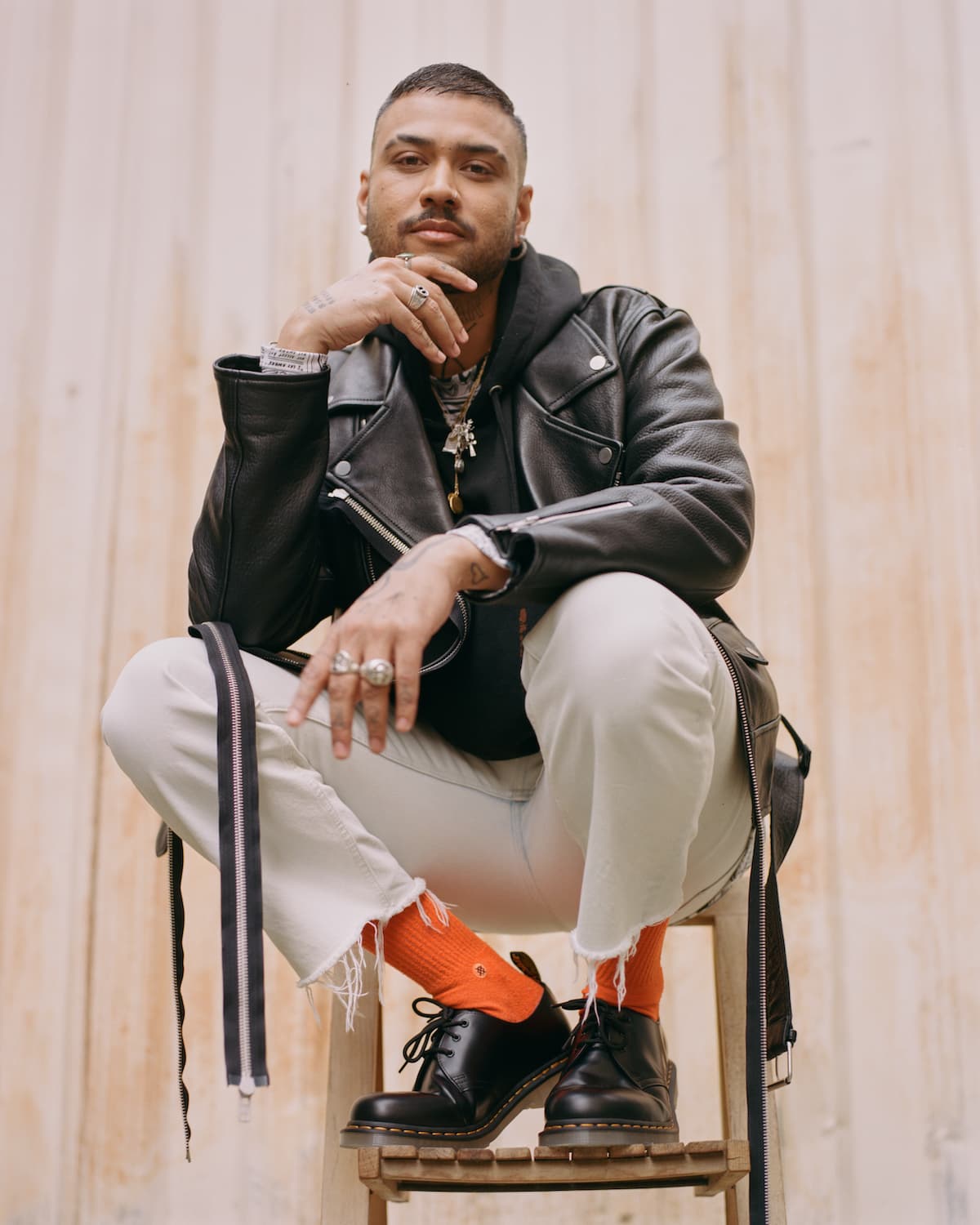
How have you used social media to connect with your community?
I’ve been in East London for 11 years but when I came, I didn’t know anyone and I used Twitter and Instagram to [launch and publicise] exhibitions like the nail art exhibition I curated, [Nailphilia in 2011]. Through Hungama, I built an organic following, bringing together queer people of colour in our community. I’ve always used social media as an asset and in a very authentic way. Naturally, my own Instagram became an archive and a retrospective of my work. It shows that I’m not just a guy who started a Bollywood, hip hop night, there are so many more strings to my bow. It reminds people that they are undefinable and they can celebrate themselves in all the different shapes and forms that they’re able to come in.
What are you most proud of from the work you do?
The ability to take a void or a gap and create something out of it. Whether that be realising that the sound of Bollywood was missing from queer culture in East London and bringing that through Hungama or, during the pandemic, seeing how the queer community didn’t have access to fitness so providing that online and prioritising queer POC and non-binary and trans people. Even my work through representation, not seeing myself on camera or not seeing people wearing the clothes I wanted to wear and thinking, “If I do it, people will see me and it will inspire them.”
Why is representation important?
When you’re younger and being brought up by your parents, they bring you up to be a projected version of what they want for you and I think it’s really important as a kid to understand that what you want to be is allowed and it can be undefinable and it can be uncomfortable and it should be championed. If you don’t see that when you’re growing up in television, cinema or music, you start to lose yourself and disappear. Seeing who you can be or seeing who you can incorporate into the multifaceted personality of yourself will allow people to be greater.
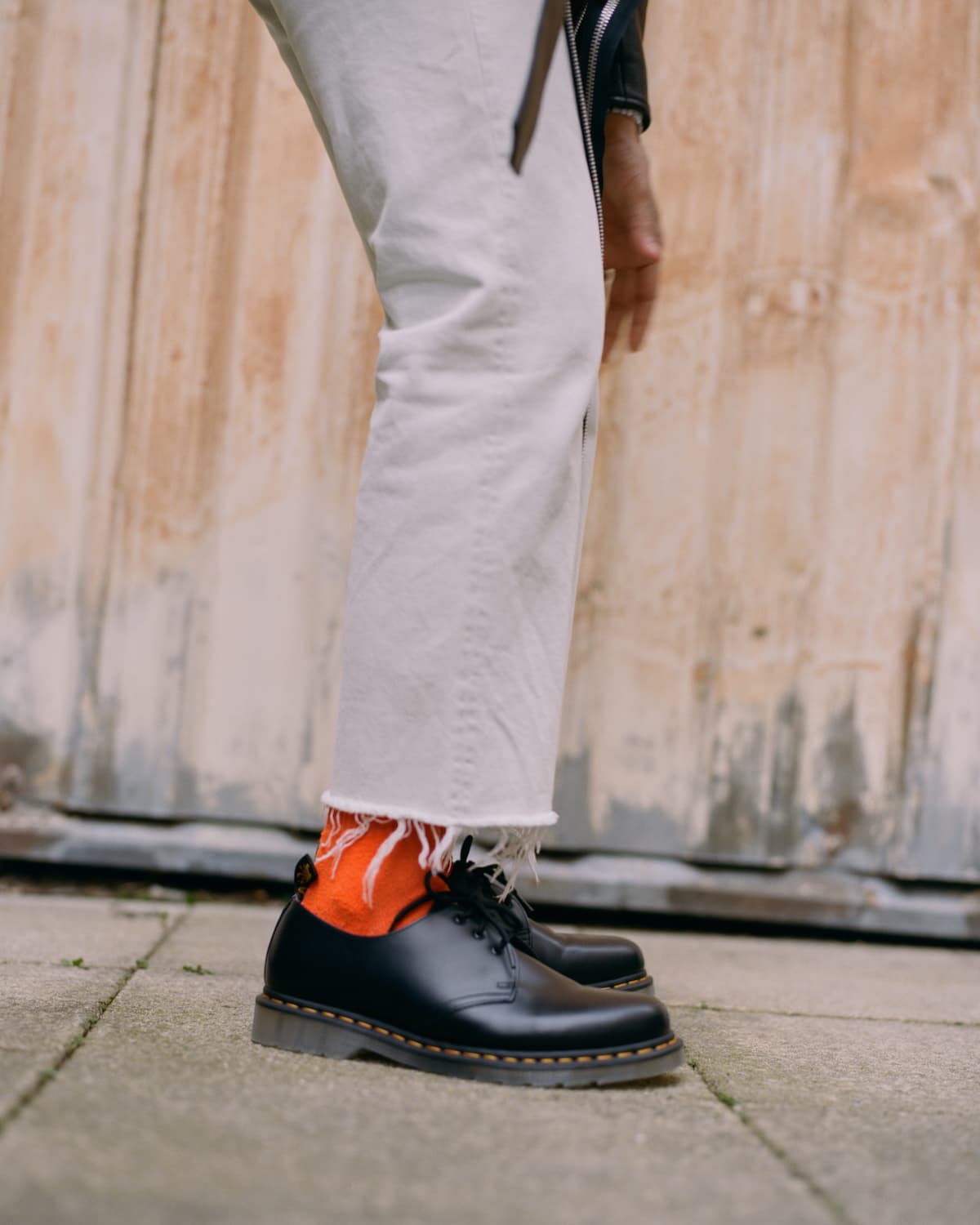
Why is nightlife important?
It’s a place where people who are feeling othered or like they don’t belong. Sound system culture or subculture is a beautiful place where people can heal, discover and be adventurous on a dance floor. It’s a place where people of all walks of life are brought together. It’s fundamental, the beating heart of culture.
What does subculture mean to you?
Subculture is anything that isn’t mainstream or commodified. It’s that beautiful part of society that exists on the fringes, where the rules are not in place and the people are not controlled and the beauty is the cracks in the porcelain.
Throughout the pandemic, how have you continued to celebrate the power of subculture while clubs remain closed?
When the pandemic hit I thought about everyone who has come to Hungama over the last 3 years, how there are people who’ve run away from home or who don’t have family. I started hosting Instagram Lives, where every day at 6pm I would interview someone who comes to the party or someone we’ve collaborated with to give people a sense of togetherness. We ended up interviewing all of our regulars and it was a nice opportunity when we were all stuck at home to break down the barriers of popularity or following or influence.
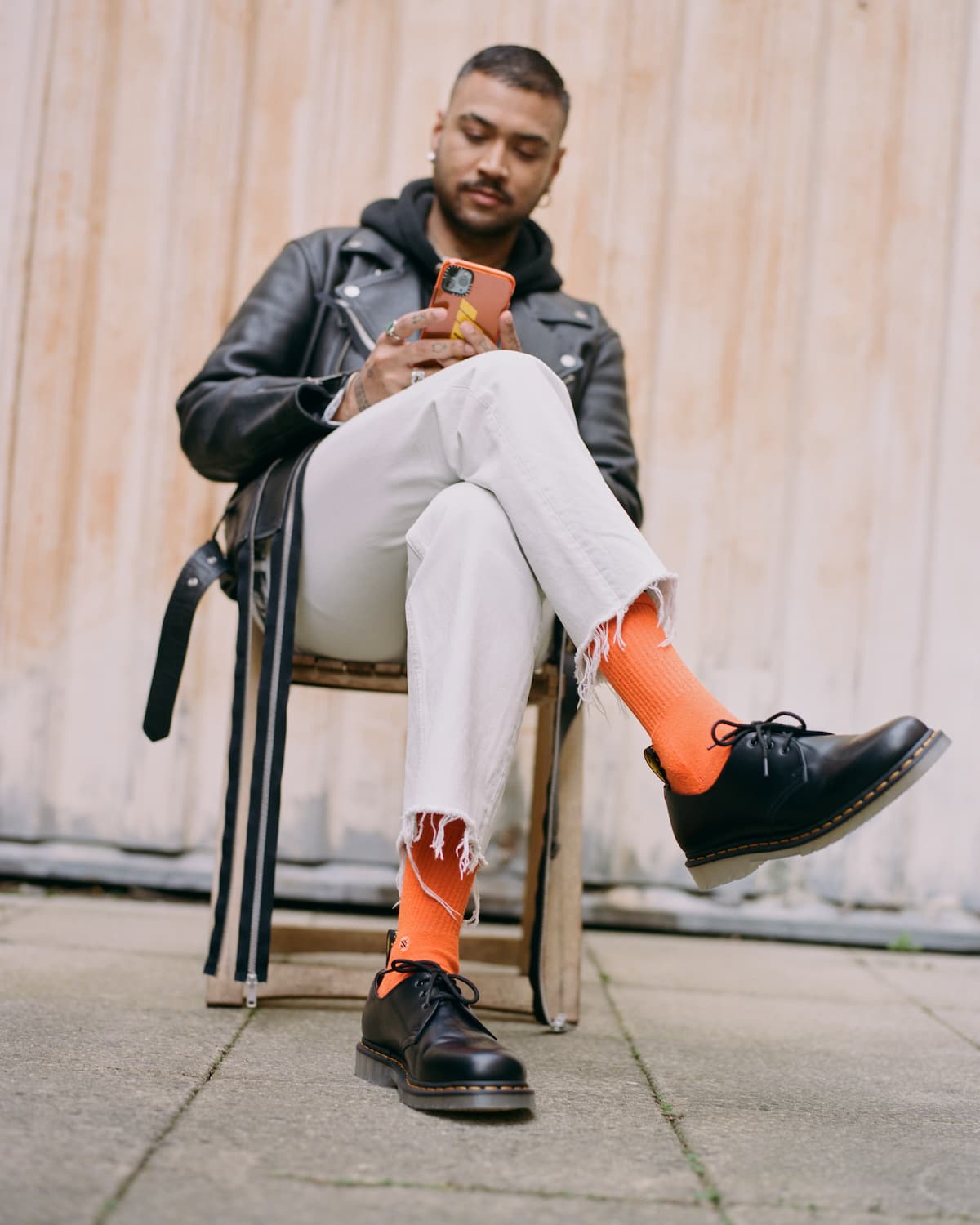
What is your Dr. Martens story?
I bought a pair of Dr. Marens when I moved to London and it’s crazy to think that now they’re 11 years old. I’ve moved a lot of times and I’ve just never parted with my Dr. Martens. They’re a symbol of my promise to always be punk in everything I do.
You mention your commitment to being punk — what does punk mean to you?
Punk started off as a subculture where it was a loud, aggressive rebellion through music and aesthetic whereas now I think punk is very subliminal. It’s about having the courage and the bravery to say something and to make a message where a message needs to be made and to stand your ground and to be a backbone for a community or a group of people who need your support. Being a good ally is punk.
The 1461s you’re wearing right now have just turned 60 — are they looking good for their age?
They’re timeless. I think with Dr. Martens, the importance of its purpose negates any any feeling of being old or passé. It’s always relevant and you know that if you’re sleeping on it, it’s about to make another statement.
Stay tuned for more Activism At Home stories throughout the month of April. Shop the 1461 at drmartens.com.
